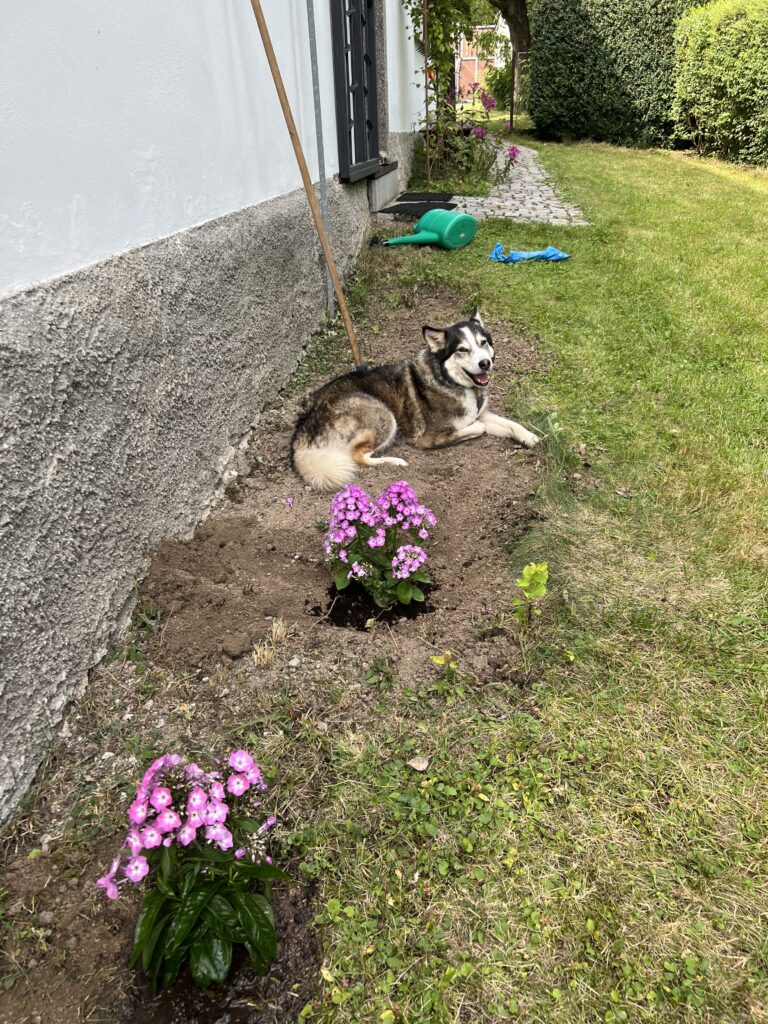On Gardening and Our Spiritual Gardens
by Ivy Helman, Ph.D.

“And the divine sent the human out of the Garden of Eden, to till the soil, from where humanity had been taken.” – Genesis 3:23
Our connection to the land runs deep. It is recognized in the Torah. It is also a difficult connection, one that takes work and care, and one that I am learning more and more about as my partner and I take over the care of her grandmother’s garden.
Since taking over its care in the second half of the summer, we have made some small changes, additions really, to an already beautiful space. We will see what returns next year. We acknowledge that we began some planting too late in the season to really expect everything to make it through the winter. But we were too excited at the prospect of more color in the space.
That’s the thing with gardens, isn’t it? One’s excitement may not pay off as one never really knows what will work and what won’t and for how long. As an example, for years before we took over, there was a beautiful Rowan tree in the front, and then three years ago it just died. We convinced my partner’s grandmother to leave the tree there for a year just to see if maybe it would come back. It never did. While there is a beautiful Japanese Acer in its place, I still think about that Rowan tree.
The constant work, care, and concern we have with our gardens or our houseplants (for those of us who do not have such access to outdoor growing spaces) is such a good metaphor for one’s relationship to the divine. Yet, ironically it is also a contradiction. Humanity was kicked out of the Garden to work the land and struggle doing so, and yet the struggle of working the land serves as a metaphor of the work, care, and concern required to connect to the divine.
Stick with me here. Just as we evaluate the changes we need to make in our garden, do we evaluate the changes we need in our spiritual gardens? If you are reading this, we are here in Elul together because for the most part we have been cultivating our spiritual gardens for years. There probably aren’t large structural changes that need to be made. But that doesn’t mean that every year there isn’t something we can improve, just like in our actual gardens or with our houseplants.
This year, in my spiritual life, I have decided to take things slowly and deliberately, just like in the garden we now have responsibility for. Where can I make small changes in my relationship with the divine that might flower in the next year? What part of my spiritual garden needs a little more water? From where can I remove a few weeds? I hope to make space for new spiritual growth.
Ivy Helman, Ph.D. is a faculty member in the Gender Studies Program at the Faculty of
Humanities at Charles University, Prague, Czech Republic. Her research interests include feminism, ecofeminism, religious studies, embodiment, art, and queer theory.
In addition, she regularly contributes to the blog: feminismandreligion.com. Contact email: .

